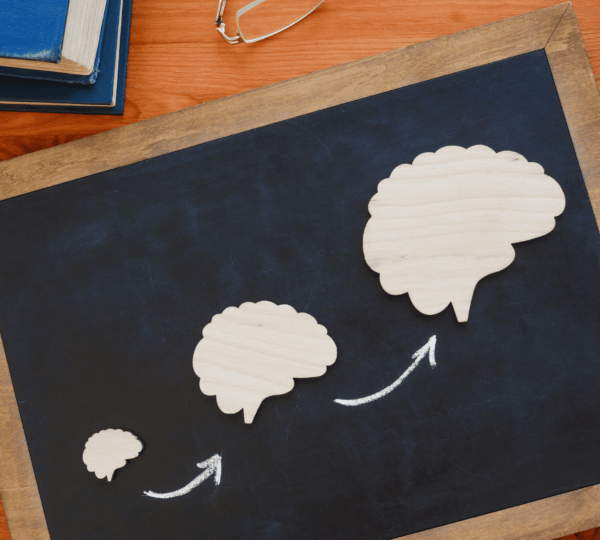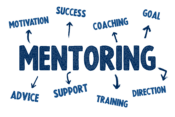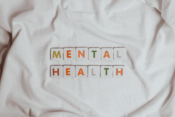
The Impact of Lifelong Learning on Mental Health
Back in elementary school, I remember feeling completely lost as the teacher spoke about something I had never heard of before—math problems with letters in them. At that moment, everything seemed confusing, and I wondered if I would ever understand it. But the more I practiced, the more things started to make sense. Slowly, I began to enjoy the challenge, and with each new concept, I felt a little more confident. It was as if I had unlocked a new part of my brain that had been waiting for the right puzzle to solve.
Looking back, that experience wasn’t just about learning math but also about realizing how powerful learning something new could be for my mind. It sparked a curiosity that stayed with me through the years, and it made me realize something important: the act of learning itself has a huge impact on our mental well-being.
This brings us to a question: Can lifelong learning improve mental well-being?
The short answer is yes. Lifelong learning isn’t just about accumulating knowledge—it’s a powerful tool for enhancing mental health. In this post, I’ll delve into the science and psychology behind this concept and share expert insights that highlight the benefits of continuous learning for mental well-being.
What Is Lifelong Learning?
Lifelong learning refers to the continuous, voluntary, and self-motivated pursuit of knowledge for personal development. Unlike traditional learning, which usually happens within the formal education system, lifelong learning is not confined to age, career, or specific goals. It encompasses a wide range of activities, from acquiring new skills and hobbies to reading, attending workshops, or even engaging in online courses. It can be formal or informal, structured or spontaneous.
But why does lifelong learning have such a profound impact on mental health? Let’s break it down.
The Link Between Lifelong Learning and Mental Health
- Cognitive Health and Neuroplasticity
One of the primary ways that lifelong learning benefits mental health is through its positive effects on the brain. As we age, cognitive decline becomes a concern for many. However, research suggests that engaging in lifelong learning can slow down or even prevent this decline.
Dr. Denise Park, a renowned psychologist and researcher at the University of Texas, explains that learning new things promotes neuroplasticity—the brain’s ability to form new neural connections. These connections strengthen cognitive functions such as memory, problem-solving, and decision-making. Studies published in journals like Frontiers in Psychology highlight that activities such as learning a new language or taking up an instrument can stimulate the brain, keeping it agile and resilient.
A study by the Mayo Clinic in 2014 found that adults who engage in intellectually stimulating activities, such as reading and playing games, are less likely to develop Alzheimer’s disease or other forms of dementia.
- Stress Reduction and Emotional Well-Being
Learning can also act as a stress-relieving activity, particularly when the focus is on activities you enjoy. In a world where anxiety, depression, and stress are common mental health challenges, finding healthy coping mechanisms is crucial. Lifelong learning provides a sense of purpose and accomplishment, which can significantly reduce stress.
The Journal of Occupational Health Psychology published a study that found employees who engage in continuous learning at work report lower levels of stress. By taking on new challenges and acquiring new skills, individuals not only boost their self-esteem but also feel more in control of their environment, which can reduce anxiety and depression symptoms.
I found that during particularly stressful periods of my career, enrolling in online courses or learning a new skill helped me redirect my focus. It allowed me to experience the joy of mastering something new, creating a mental escape from daily worries.
- Increased Self-Esteem and Confidence
When we learn something new, we experience a sense of achievement. This feeling of competence boosts our self-esteem and encourages us to take on even more challenges. Lifelong learning fosters a growth mindset, which is the belief that our abilities and intelligence can be developed through dedication and hard work.
According to Dr. Carol Dweck, a leading psychologist and author of Mindset: The New Psychology of Success, adopting a growth mindset is crucial for mental health. People with a growth mindset are more resilient in the face of setbacks and are better able to cope with challenges, leading to improved emotional well-being.
The Mental Health Benefits of Different Learning Activities
Now that we understand the core connection between lifelong learning and mental health, let’s explore the specific activities that have the most significant impact.
- Learning a New Language
Studies consistently show that learning a new language can have tremendous benefits for brain health and emotional well-being. According to a 2020 study published in The Lancet Psychiatry, bilingual individuals show greater cognitive flexibility and are better equipped to handle stress.
- Physical Activities and Movement
Learning doesn’t have to be limited to traditional subjects. Learning new forms of exercise or physical activities, such as yoga, Pilates, or even a new sport, can also boost mental health. Physical activity releases endorphins, the “feel-good” hormones, which reduce anxiety and depression. Yoga, for instance, has been found to enhance mindfulness, improve mood, and reduce symptoms of PTSD and anxiety, according to research in the Journal of Psychiatric Research.
- Creative Hobbies
Engaging in creative activities such as painting, writing, or playing music can also improve mental health. These activities provide an emotional outlet, reduce stress, and promote mindfulness. According to a study published in The Arts in Psychotherapy, creative expression has been shown to reduce anxiety and depression while improving overall life satisfaction.
Overcoming Obstacles to Lifelong Learning
- Time Constraints: Prioritize learning activities and make time for them in your schedule.
- Financial Constraints: Look for free or low-cost learning opportunities, such as online courses and library resources.
- Lack of Motivation: Set realistic goals, reward yourself for your achievements, and find a learning buddy to keep you motivated.
Expert Opinions and Recent Research
Lifelong learning isn’t just a hobby for the curious; it’s a necessary component of mental well-being. Dr. Norman Doidge, a psychiatrist and author of The Brain That Changes Itself, states that the brain is incredibly adaptable, and learning throughout life allows us to strengthen and rewire our neural pathways, enhancing cognitive abilities and emotional resilience.
In addition, the World Health Organization has emphasized the importance of mental health education in improving global mental well-being, highlighting the role of learning in managing mental health challenges.
Conclusion: The Power of Lifelong Learning for Mental Health
Lifelong learning is not just about acquiring new knowledge and skills; it’s also about nurturing our mental well-being. By embracing a lifelong learning mindset, we can improve our cognitive function, boost our mood, and enhance our overall quality of life. So, let’s embrace the journey of lifelong learning and unlock the full potential of our minds.
References:
- Park, D. C. (2014). The effects of cognitive training on brain health and mental well-being. Journal of Aging and Health.
- Doidge, N. (2007). The Brain That Changes Itself. Penguin Books.
- Dweck, C. S. (2006). Mindset: The New Psychology of Success. Random House.
- “Lifelong Learning and Its Impact on Mental Health,” Frontiers in Psychology (2020).
- “The Cognitive Benefits of Bilingualism,” The Lancet Psychiatry (2020).
- The Arts in Psychotherapy, 2021: Impact of creative arts on mental health.













